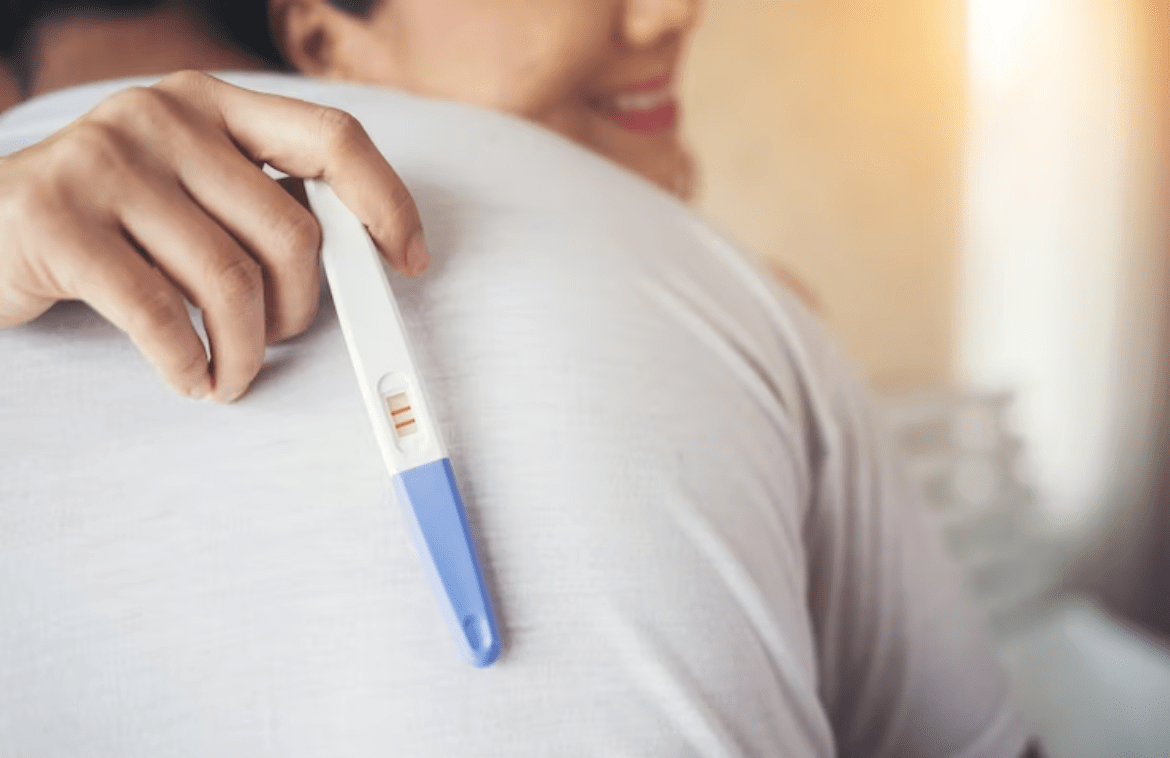How long after implantation do tests need to be done for pregnancy? This question does arise in the mind of the woman patient. after implantation bleeding can I test? is a question that needs to be answered by medical professionals.
Spotting or slight bleeding is sufficient to cause fear in the hearts of a person. If suspecting implantation bleeding that fear can quickly turn to excitement. When trying to become pregnant, every little twinge (or wipe) can rather cause mental disturbance and thus the person may go in for a pregnancy test.
Spotting can indeed be a sign of early pregnancy but not a guarantee.
Related Read: Pregnancy Test One Day After Implantation Bleeding
What is implantation bleeding?
When a fertilized egg does implant itself into one’s lining of the woman’s uterus, a tiny bit of bleeding or light spotting can indeed occur. This is known as implantation bleeding. As the rapidly dividing clusters of cells do tend to attach themselves to the uterine lining and then burrow in for further growth’ implies this process can take several days to complete and may also cause slight bleeding. Implantation happens to be a critical step of pregnancy and for most people, this does happen between 6 to 12 days after ovulation. Sometimes known as implantation spotting, it is usually brown or pink and always happens about 10 to 14 days after ovulation.
Implantation bleeding vs period
Every person will indeed experience pregnancy differently, and so not all people will rather experience implantation bleeding. This can make it even more difficult to be able to tell whether a person is bleeding from implantation spotting rather than of course an impending period. Although implantation bleeding is generally pink in color or even brown, as opposed to the bright red of period blood, any sort of bleeding in early pregnancy can be a concern so always check in with one’s doctor if worried.
Aside from color, there are also a few differences that generally distinguish implantation bleeding from a period. Implantation may be accompanied by other early pregnancy signs such as cramps, sore breasts, increased nausea, as well as insomnia. An implantation bleed will indeed be lighter in color and usually only lasts a few hours to a few days (while the egg attaches itself) as opposed to a period that will start light and also get continually heavier.
Any cramps associated with implantation are usually lighter and milder than the heavier cramping sometimes associated with menstruation. The timing of the cramps can also be an indication that they are from implantation rather than one’s period. Implantation bleeding does occur roughly ten days after ovulation whereas one’s period would be closer to fourteen days. The whole process is rather regulated by hormones, which do vary hugely from person to person as well as cycle to cycle. Precisely tracking ovulation with a fertility tracker does help estimate when one’s implantation does occur. The next step is to know how long after implantation bleeding can I test.
When Can You Take a Pregnancy Test After Implantation Bleeding?
It is important to wait the appropriate amount of time before testing so that a person can get the most accurate results for whichever test a person chooses. Taking a test at the wrong time can indeed lead to inaccurate results. Pregnancy tests do help detect human chorionic gonadotropin or HCG, which is often known as “the pregnancy hormone”. This hormone is indeed vital to the critical processes necessary for early pregnancy and is only indeed released once one’s fertilized egg has successfully implanted itself into the woman’s uterus.
Suggested Read: Can progesterone improve chances of pregnancy?
The type of test a person takes will determine how many days after implantation a test can be taken. The infamous two-week wait does ensure that if a person is pregnant, one’s body will have produced enough HCG to be detected on a pregnancy test. A person needs to take a pregnancy test not too early as the results may not be as accurate and can result in a false-negative or even positive result from a chemical pregnancy.
Pregnancy tests to detect the presence of HCG in urine or even blood as the primary way of determining pregnancy. In a few cases, one’s doctor may rather continue to monitor one’s HCG levels to assess the health of one’s pregnancy since there is a predictable pattern in HCG levels.
Related Read: First Pregnancy Scan after IVF Treatment
Conclusion
Thus, how long after implantation tests are to be done is of much concern to women who are keen to be pregnant.
Visit Our Clinic:
Fertility Clinic in Hyderabad
Fertility Clinic in Visakhapatnam
Fertility Clinic in Vijayawada
Fertility Clinic in Karimnagar
Fertility Clinic in Warangal
Fertility Clinic in Rajahmundry
Fertility Clinic in Tirupati
Fertility Clinic in Kurnool




